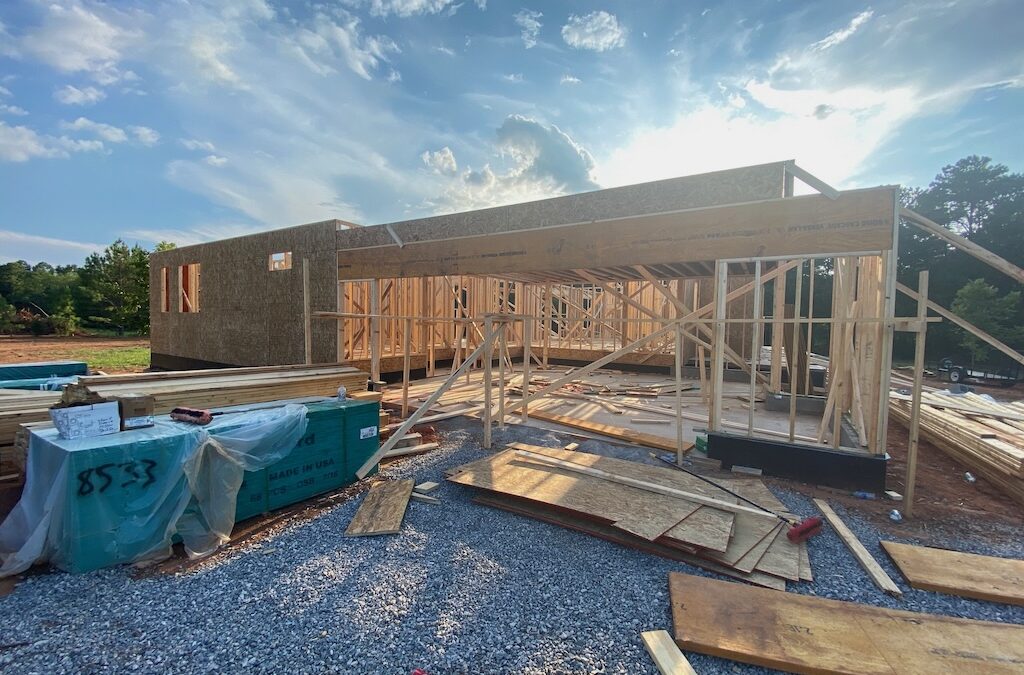Preparing for a first-time meeting with Ridgeline Building Group is crucial to ensure clear communication, set expectations, and lay the groundwork for a successful construction or renovation project. Here’s how you can effectively prepare:
Define Your Project Goals and Requirements
- Outline Your Vision: Clearly articulate what you want to achieve with your home construction or renovation project. Consider factors such as design preferences, functionality, and budget constraints.
- List Priorities: Identify your must-have features and any specific needs or concerns you want to address during the project.
Gather Inspiration and Ideas
- Create a Vision Board: Collect images, magazine clippings, or digital pins that showcase styles, materials, and designs you like. This helps convey your aesthetic preferences to the contractor.
- Research Materials: Familiarize yourself with different building materials, finishes, and technologies that align with your vision and budget.
Establish Your Budget
- Set a Realistic Budget: Determine how much you are willing to invest in the project, including construction costs, materials, permits, and potential contingencies.
- Discuss Financing Options: If necessary, explore financing options available to you and understand payment schedules or milestones during the project.
Compile Essential Documentation
- Property Information: Provide copies of property deeds, surveys, and any relevant documents that outline property boundaries or restrictions.
- Design Plans (if available): If you have preliminary sketches, architectural plans, or detailed design concepts, share these with the contractor to facilitate discussions.
Prepare Questions to Ask
- Experience and Qualifications: Inquire about the contractor’s experience with similar projects, qualifications, certifications, and references from past clients.
- Project Timeline: Discuss the estimated timeline for completion, including key milestones and potential factors that could affect the schedule.
- Communication and Updates: Clarify how communication will be managed throughout the project and how you will receive updates on progress, changes, or challenges.
Consider Logistics and Practicalities
- Access and Parking: Ensure there is adequate space for contractor vehicles, equipment, and materials deliveries during construction.
- Neighbors and Community: Consider how the project might impact neighbors and discuss any necessary permissions or notifications required.
Confirm Legal and Contractual Details
- Contracts and Agreements: Review and understand the terms of the contract thoroughly before signing. Clarify payment schedules, scope of work, warranties, and dispute resolution procedures.
- Permits and Regulations: Discuss who will be responsible for obtaining necessary permits and ensuring compliance with local building codes and regulations.
Prepare Mentally and Emotionally
- Be Open to Suggestions: Remain flexible and open-minded during discussions. Contractors may offer valuable insights or alternative solutions based on their expertise.
- Clarify Expectations: Clearly communicate your expectations regarding quality standards, cleanliness, and safety protocols on the job site.
Take Notes and Follow Up
- Document Discussions: Take notes during the meeting to record key points, decisions, and action items discussed.
- Follow Up: After the meeting, follow up with any additional questions or information requested by the contractor. Confirm next steps and timelines for beginning the project.
Preparing for a first-time meeting with Ridgeline owner Brian Stamps sets the stage for a productive collaboration and ensures that both parties are aligned on project goals, expectations, and logistics. By taking the time to clarify your vision, gather necessary documentation, and ask pertinent questions, you can establish a strong foundation for a successful construction or renovation experience. Effective communication and thorough preparation contribute to a smooth and satisfying journey toward realizing your dream home.

